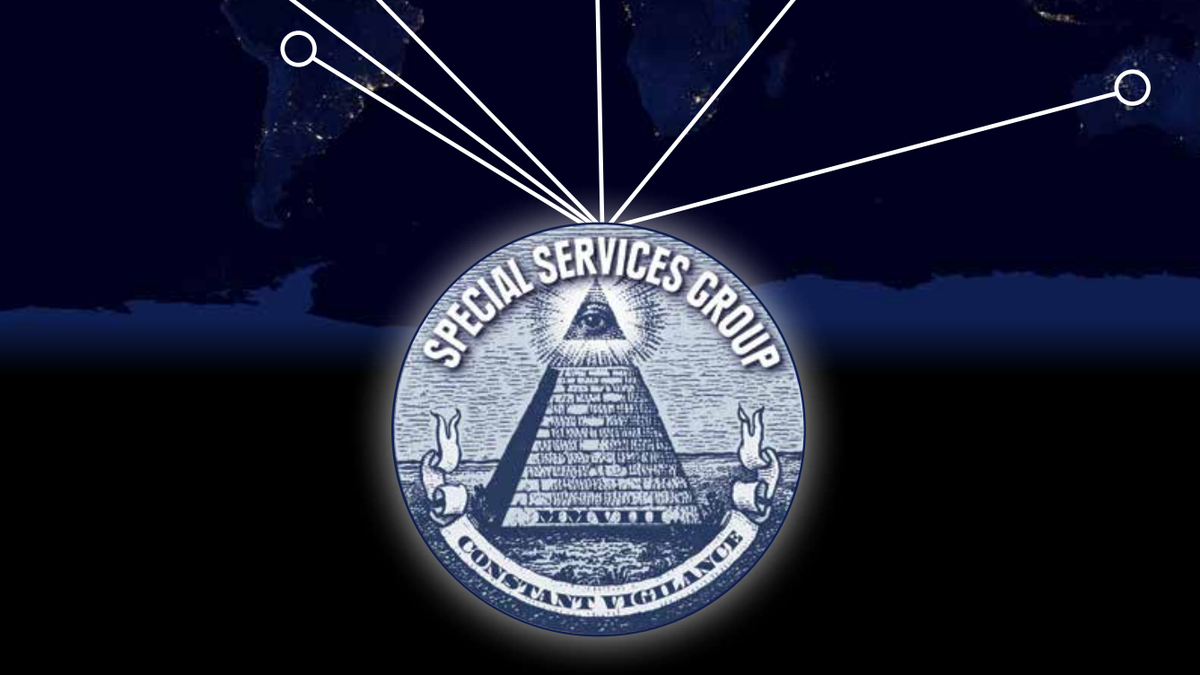FBI Surveillance Vendor Threatens to Sue Tech Reporters for Heinous Crime of Doing Journalism - 5 minutes read
 FBI Surveillance Vendor Threatens to Sue Tech Reporters for Heinous Crime of Doing Journalism
FBI Surveillance Vendor Threatens to Sue Tech Reporters for Heinous Crime of Doing JournalismMotherboard on Thursday revealed that a “secretive” U.S. government vendor whose surveillance products are not publicly advertised has been marketing hidden cameras disguised as seemingly ordinary objects—vacuum cleaners, tree stumps, and tombstones—to the Federal Bureau of Investigation, among other law enforcement agencies, and the military, in addition to, ahem, “select clients.”
Yes, that’s tombstone cams, because absolutely nothing in this world is sacred.
The vendor, Special Services Group (SSG), was apparently none too pleased when Motherboard revealed that it planned to publish photographs and descriptions of the company’s surveillance toys. When reached for comment, SSG reportedly threatened to sue the tech publication, launched by VICE in 2009.
According to Motherboard, a brochure listing SSG’s products (starting at link from page 93) was obtained through public records requests filed with the Irvine Police Department in California.
Freddy Martinez, a policy analyst at government accountability group Open The Government, and Beryl Lipton, a reporter/researcher at the government transparency nonprofit MuckRock, both filed requests and obtained the SSG brochure, Motherboard said.
In warning the site not to disclose the brochure, SSG’s attorney reportedly claimed the document is protected under the International Traffic in Arms Regulations (ITAR), though the notice did not point to any specific section of the law, which was enacted to regulate arms exports at the height of the Cold War.
ITAR does prohibit the public disclosure of certain technical data related to military munitions. It’s unlikely, however, that a camera designed to look like a baby car seat—an actual SSG product called a “Rapid Vehicle Deployment Kit”—is covered under the law, which encompasses a wide range of actual military equipment that can’t be replicated in a home garage, such as space launch vehicles, nuclear reactors, and anti-helicopter mines.
ITAR explicitly does not cover “basic marketing information” or information “generally accessible or available to the public.”
The California Public Records Act itself also includes an exemption that would have enabled the Irvine Police Department to legally withhold the brochure, had it determined the public interest served by not making it public outweighed the public interest served by disclosing it. That was apparently not the case.
The “strongly worded legal email” from SSG’s lawyer went on to suggest the brochure may include copyrighted material; a dubious claim considering the entire purpose of a brochure is to advertise a company’s wares. The document itself is clearly not a confidential internal record.
Motherboard declined to comment on the threat beyond what’s already printed in its article. SSG did not immediately respond to a request for comment. (We’ll update if it does.)
Adam Marshall, an attorney at the Reporters Committee for Freedom of the Press, said SSG’s notice was probably just an attempt to scare Motherboard into squashing the story. Telling, he said, was SSG’s claim that the brochure “may” include information restricted under various laws—the release of which, it claimed, could subject Motherboard to civil, and potentially criminal, liability.
“They’re not saying it does; they’re saying it may,” Marshall said. “That’s a classic lawyer word, because, you know, anything might be anything.”
With regard to the copyright claim, publication of the brochure is more than likely covered under the fair use doctrine, which protects the unlicensed use of copyright-protected works.
“One of the factors in determining whether something is fair use or not is whether its publication is going to have a negative monetary effect on the person who owns the copyright,” Marshall said. “But in the case of a product catalog, of course the whole point is to distribute it so people can see things. As far as I can tell, they don’t say they’re selling the catalog itself.”
“In all honestly, the notice they sent seems like it’s intended to scare people into not publishing this and to dissuade them from doing so,” added Marshall. “Looking at the information, it’s clearly in the public interest, especially if they’re trying to sell this stuff to domestic law enforcement.”
Source: Gizmodo.com
Powered by NewsAPI.org
Keywords:
Federal Bureau of Investigation • Surveillance • Crime • Journalism • Vice (magazine) • Surveillance • Marketing • Hidden camera • Federal Bureau of Investigation • Camshaft • Nothing in This World • Special Services Group • Special Services Group • Vice (magazine) • Staff sergeant • Vice (magazine) • Staff sergeant • Product (business) • Irvine Police Department • California • Accountability • Research • Open government • Nonprofit organization • MuckRock • Staff sergeant • Vice (magazine) • International Traffic in Arms Regulations • International Traffic in Arms Regulations • Arms industry • Cold War • International Traffic in Arms Regulations • Military • Car seat • Staff sergeant • Military technology • Launch vehicle • Nuclear reactor • Helicopter • Information • Information • California Public Records Act • Irvine Police Department • Public interest • Public interest • Case law • Law • Email • Staff sergeant • Lawyer • Copyright • Company • Motherboard • Staff sergeant • Request for Comments • Adam Marshall • Reporters Committee for Freedom of the Press • Vice Media • Information • Law • Vice Media • Civil and political rights • Legal liability • Thurgood Marshall • Lawyer • Copyright • Publication • Fair use • Copyright infringement • Copyright • Publication • Money • Legal personality • Copyright • Alfred Marshall • Holism • Person • Information • Public interest •